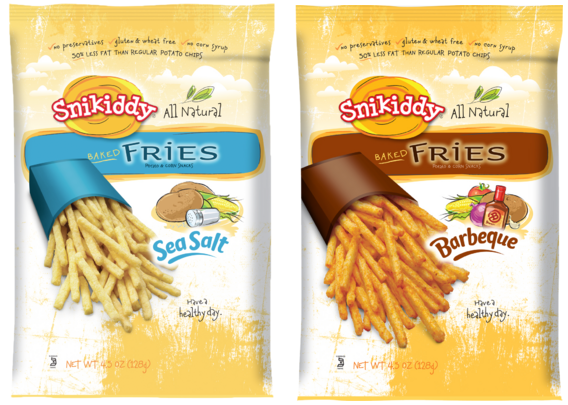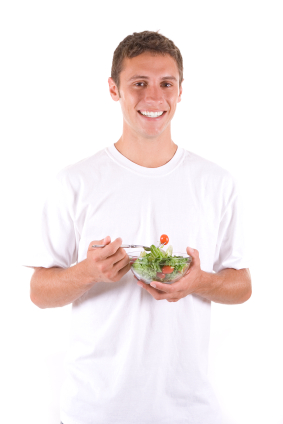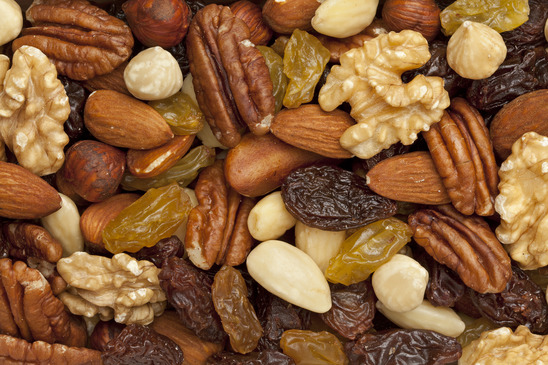KIND, one of the most visible names in healthy snacks, is reducing 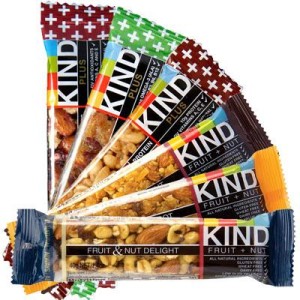 added sugar across its original Fruit & Nut bar portfolio. This effort, which started in late 2014, is part of KIND’s brand promise to offer wholesome and tasty snack choices.
added sugar across its original Fruit & Nut bar portfolio. This effort, which started in late 2014, is part of KIND’s brand promise to offer wholesome and tasty snack choices.
Beginning in late spring, KIND Fruit & Nut bars like Apple Cinnamon & Pecan and Almonds & Apricots in Yogurt, will contain between 15 and 50 percent less added sugar, compared to the prior recipes. The recipe update will be made to seven flavors across KIND’s Fruit & Nut Bar portfolio.
KIND was able to identify ways to lower sugar without compromising taste, such as swapping sweetened fruit with unsweetened fruit and reducing added sugar in certain ingredients like yogurt coatings. The result allows the flavor from the fruit, such as apricot and apple, and the nuts to take center stage. Like all KIND snacks, Fruit & Nut Bars contain no artificial sweeteners and no added sugar alcohols.
“At KIND we’re constantly challenging ourselves to do better. Last year our team revisited the line that started it all for KIND, our Fruit & Nut Bars, looking for ways to keep improving on a snack that was already packed with wholesome, delicious ingredients,” said KIND CEO and founder Daniel Lubetzky. “I’m so proud of our team. For us, this is much more than a recipe update, it’s about honoring our history and continuing to fulfill our brand promise of making snacks that are both nutritious and great-tasting.”
KIND’s Fruit & Nut line disrupted the snack bar category in 2004 with its nutrient-dense ingredients like premium nuts and pieces of fruit, made visible through transparent packaging.
“Eating sugar in excess, as many Americans currently do, is unhealthy, particularly when it is in the form of added sugar or artificial sweeteners versus the naturally-occurring sugar that you find in fruit,” said David L. Katz, MD, MPH, FACPM, FACP, director of the Yale University Prevention Research Center and senior nutrition advisor to KIND. “I’ve been a longtime advocate of KIND snacks because they contain wholesome ingredients like fruit, nuts and seeds and never use artificial sweeteners or added sugar alcohols.”
The number one ingredient in all KIND Fruit & Nut Bars is nuts, and the bars have a low glycemic index. Low glycemic foods generally help maintain blood sugar levels that are already in the normal range.
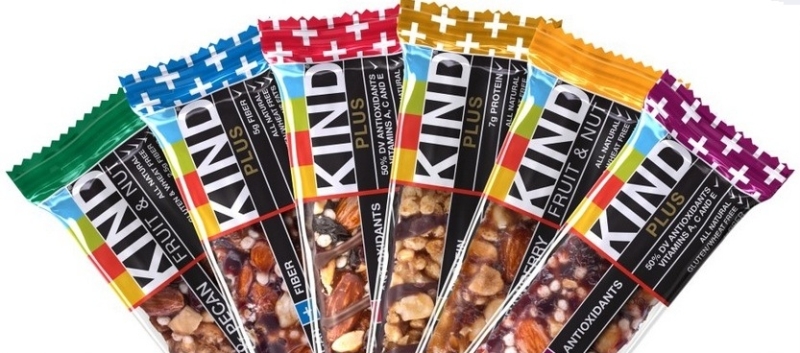
Lowering the added sugar in KIND Fruit & Nut Bars is only the latest in KIND’s ongoing effort to create snacks that are both wholesome and delicious in New York City and across the country:
• In 2012, KIND introduced the best-selling line KIND Nuts & Spices, whole nut snack bars flavored with delicious spices for a seemingly indulgent taste – and have 5g of sugar or less, which is 50 percent less sugar per bar compared to the average nutrition bar
• In 2014, KIND debuted STRONG & KIND®, its bold, savory snack line featuring 10g of protein and containing no more than 6g of sugar per bar
• Also in 2014, the company expanded its line of KIND Healthy Grains® Clusters, adding two options with 6g of sugar or less, Raspberry Clusters with Chia Seeds (5g of sugar per 1/2 cup serving) and Banana Nut Clusters (6g of sugar per 1/2 cup serving)
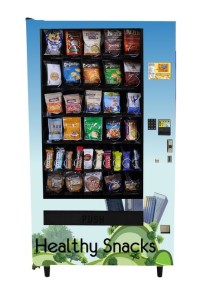 KIND is also taking an active voice in public policy to helping advance better practices within the food industry to improve public health. This includes supporting a proposal from the Food and Drug Administration to include added sugars on the Nutrition Facts Panel, so that it will be easier for people to understand the amount of added sugar in the foods that they eat.
KIND is also taking an active voice in public policy to helping advance better practices within the food industry to improve public health. This includes supporting a proposal from the Food and Drug Administration to include added sugars on the Nutrition Facts Panel, so that it will be easier for people to understand the amount of added sugar in the foods that they eat.
All KIND snacks are made from wholesome ingredients, are gluten-free and are made from non-genetically engineered ingredients. KIND currently offers seven different snack lines including: KIND® Fruit & Nut and KIND® PLUS, two lines of delicious whole nut & fruit bars; KIND® Nuts & Spices, a line of whole nut & spice bars that have 5g of sugar or less; KIND Healthy Grains® Clusters, delicious blends of five super grains; KIND Healthy Grains® Bars, a line of crunchy and chewy granola bars; and STRONG & KIND®, a line of bold, savory bars featuring 10g of protein. KIND’s newest innovation – KIND® BREAKFAST – are soft-baked with a crispy outside, providing sustained energy from whole grains.
Through its social mission – known as the KIND Movement – KIND is committed to inspiring kindness through acts big and small. It fulfills this commitment through programming like KIND Causes, which helps people bring their socially-impactful ideas to life with monthly grants. Looking for healthy break room service at your New York City workplace? Call Healthy Vending NY today at 917.572.3671 for a free no-obligaton consultation of your break room needs.
 the Center for Food Integrity and the Harvard Business Review suggest you are.
the Center for Food Integrity and the Harvard Business Review suggest you are.